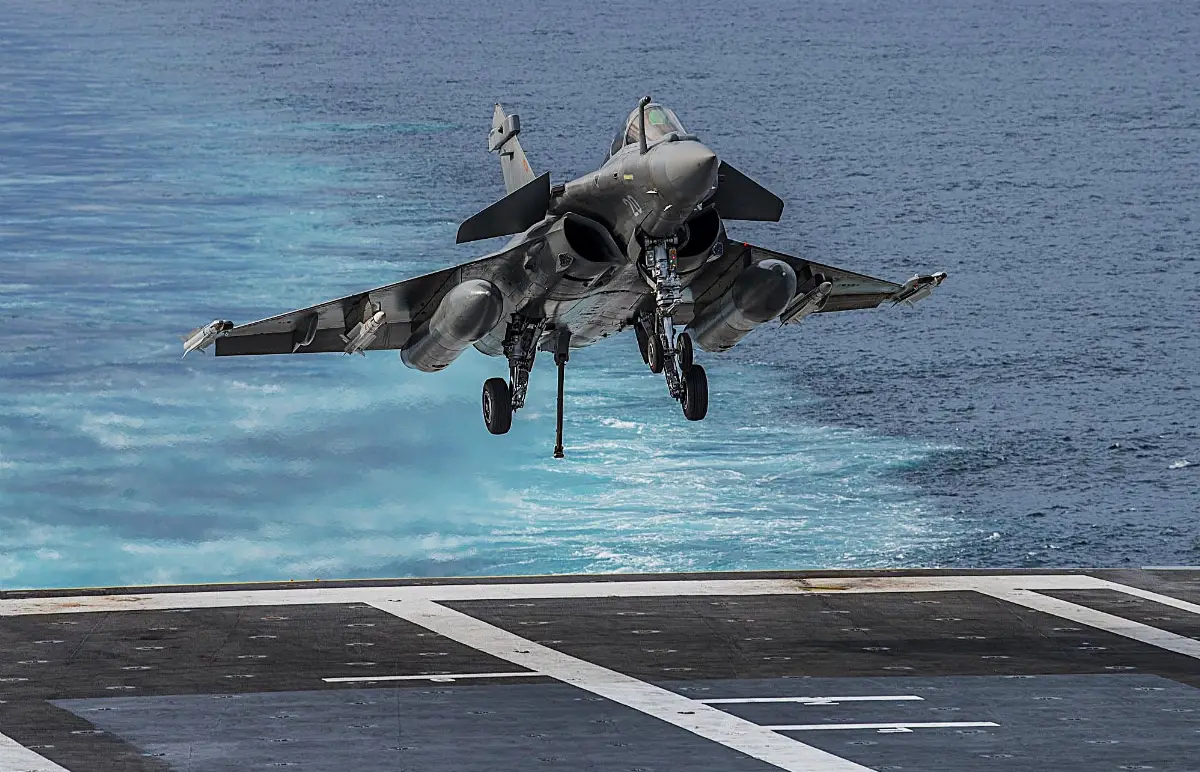
Discussions: did Pakistan really shoot down Indian Rafale fighter jets?
There is no independent evidence at this time. New Delhi denies, Islamabad insists...

French intelligence sources have reportedly confirmed the downing of a Rafale, fueling tensions after Indian missile strikes in response to the April 22 incident in Indian-backed Kashmir
It is now escalation: the fragile truce between India and Pakistan has been abruptly interrupted by a new wave of accusations and denials, triggered by Islamabad's claim to have shot down several Indian fighter jets, including three sophisticated French-made Rafales. The news, initially reported by "CNN" and attributed to a senior French intelligence official, quickly went around the world, raising serious concerns about regional stability (see AVIONEWS).
Tensions between the two nuclear-armed neighbors had reached a boiling point following the deadly terrorist attack on April 22, 2025, in Pahalgam, Indian-administered Kashmir, which left 26 civilians dead, including Indian tourists and a Nepalese national. In response to this attack, which New Delhi attributed to terrorist groups operating from Pakistani territory, India launched "Operation Sindoor" on the intervening night of May 6-7. The Indian military action involved a series of targeted missile strikes against alleged military infrastructure located both in Pakistan and in the portion of Kashmir under its administration.
Islamabad's reaction was immediate. Pakistani Defense Minister Khawaja Asif, in a joint press conference with military spokesman Lieutenant General Ahmed Sharif Chaudhry, declared that the Pakistani Air Force successfully repelled Indian attacks, shooting down five enemy aircraft: three Rafale fighters, an Su-30 and a MiG-29. Local government sources cited by "Reuters" also confirmed the crash of three Indian fighter planes in Jammu and Kashmir yesterday, May 7. However, the precise causes remain uncertain at the moment, oscillating between the hypothesis of enemy fire, technical failures or other dynamics yet to be ascertained.
The alleged confirmation by a French intelligence official, although not supported by further details or official statements from the Paris government, has added a significant element of concern to the story. The Rafale, a technological jewel of the Indian Air Force, is considered one of the most advanced multi-role fighters in the world and its potential loss in combat would represent a major blow to New Delhi, in addition to marking its first operational defeat.
India, for its part, has kept a low profile on the issue of alleged air losses. An Indian government press release issued in the hours after the attacks confirmed the execution of "Operation Sindoor", describing it as a "targeted, considered and non-escalating" action against nine alleged military infrastructure sites. The statement stressed "remarkable restraint" in the selection of targets and the manner of execution, reiterating that no Pakistani military facility had been intentionally hit. No mention was made, however, of the alleged loss of fighter jets.
This silence from New Delhi, while not unusual in conflict settings, is fueling uncertainty and speculation. So far, despite some video clips and images purporting to show aircraft wreckage, no independent, verified evidence has emerged to support Pakistan’s claims of downing Rafales or other Indian fighters. Missile debris and fuel tanks recovered so far do not provide enough evidence to confirm Islamabad’s claims of losses.
The escalation comes at a sensitive time, when both nations have significantly modernized their air forces. India fields 36 Rafale fighters, equipped with long-range Scalp cruise missiles, and recently signed a deal to acquire an additional 26 Rafale Marine variants (see AVIONEWS). Pakistan, for its part, has bolstered its fleet with Chinese J-10CE fighters in an effort to replace its ageing Mirage III/5. In this context of increasing military modernization, a potential air clash with significant losses could have far-reaching strategic implications for the balance of power in the region.
The international community, for its part, is watching the situation with growing concern, aware of the intrinsic risks associated with a potential escalation between two nuclear powers. While Islamabad continues to assert its claims, New Delhi remains silent on the alleged losses, fueling a climate of uncertainty and suspicion. Only the emergence of concrete and verifiable evidence will be able to shed light on the veracity of Pakistan's claims and the real dynamics of this high-risk air clash. Tensions on the border remain palpable, and fears of a new escalation loom over the region.
AVIONEWS - World Aeronautical Press Agency